
Animals and humans
Why be dragons? How massive, reptilian beasts entered our collective imagination
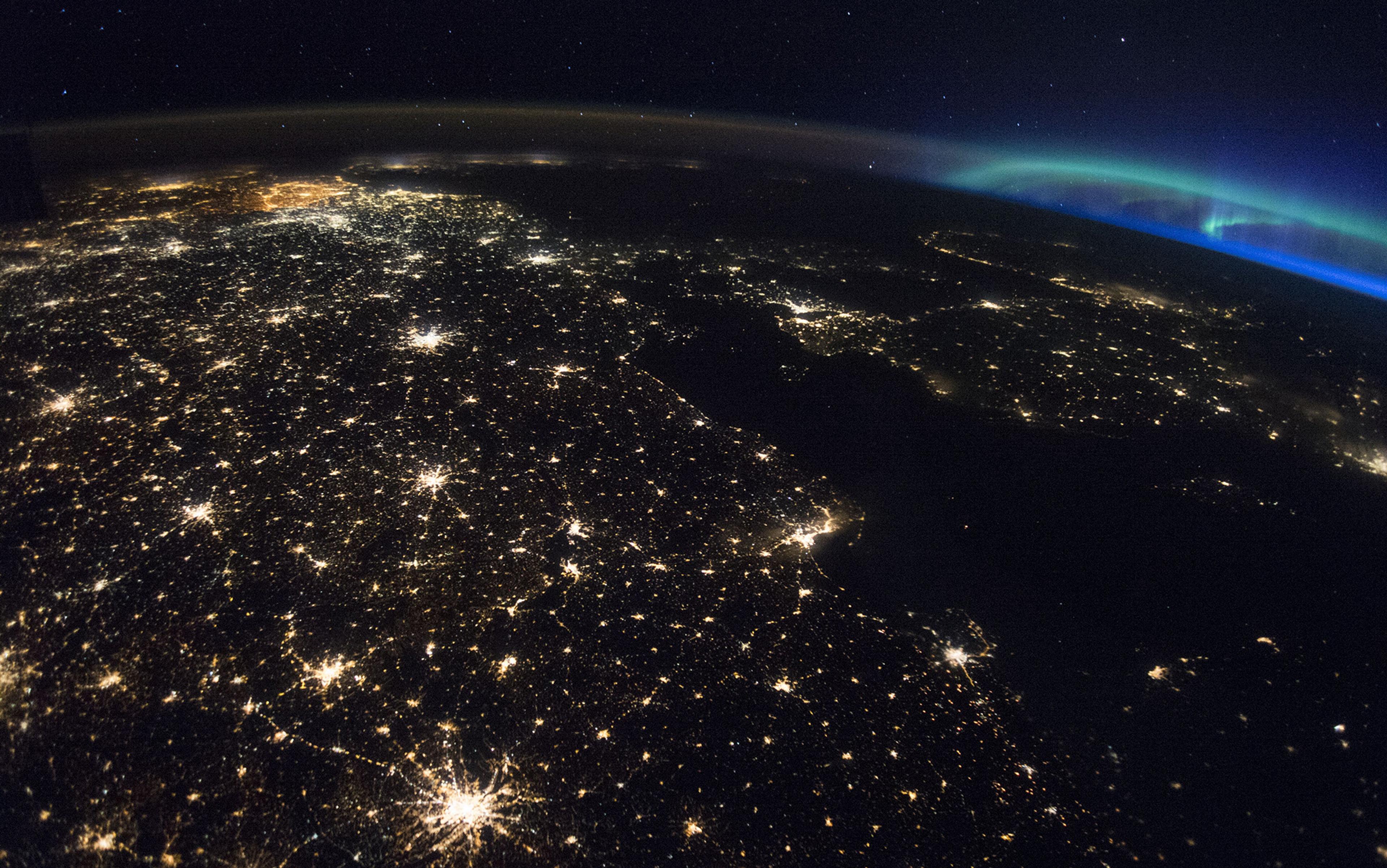
Ecology and environmental sciences
To take care of the Earth, humans must recognise that we are both a part of the animal kingdom and its dominant power
Hugh Desmond

How the world’s richest reds are derived from an innocuous Mexican insect

Quantum theory
Quantum dialectics
When quantum mechanics posed a threat to the Marxist doctrine of materialism, communist physicists sought to reconcile the two
Jim Baggott

The abyss at the edge of human understanding – a voyage into a black hole

Building embryos
For 3,000 years, humans have struggled to understand the embryo. Now there is a revolution underway
John Wallingford
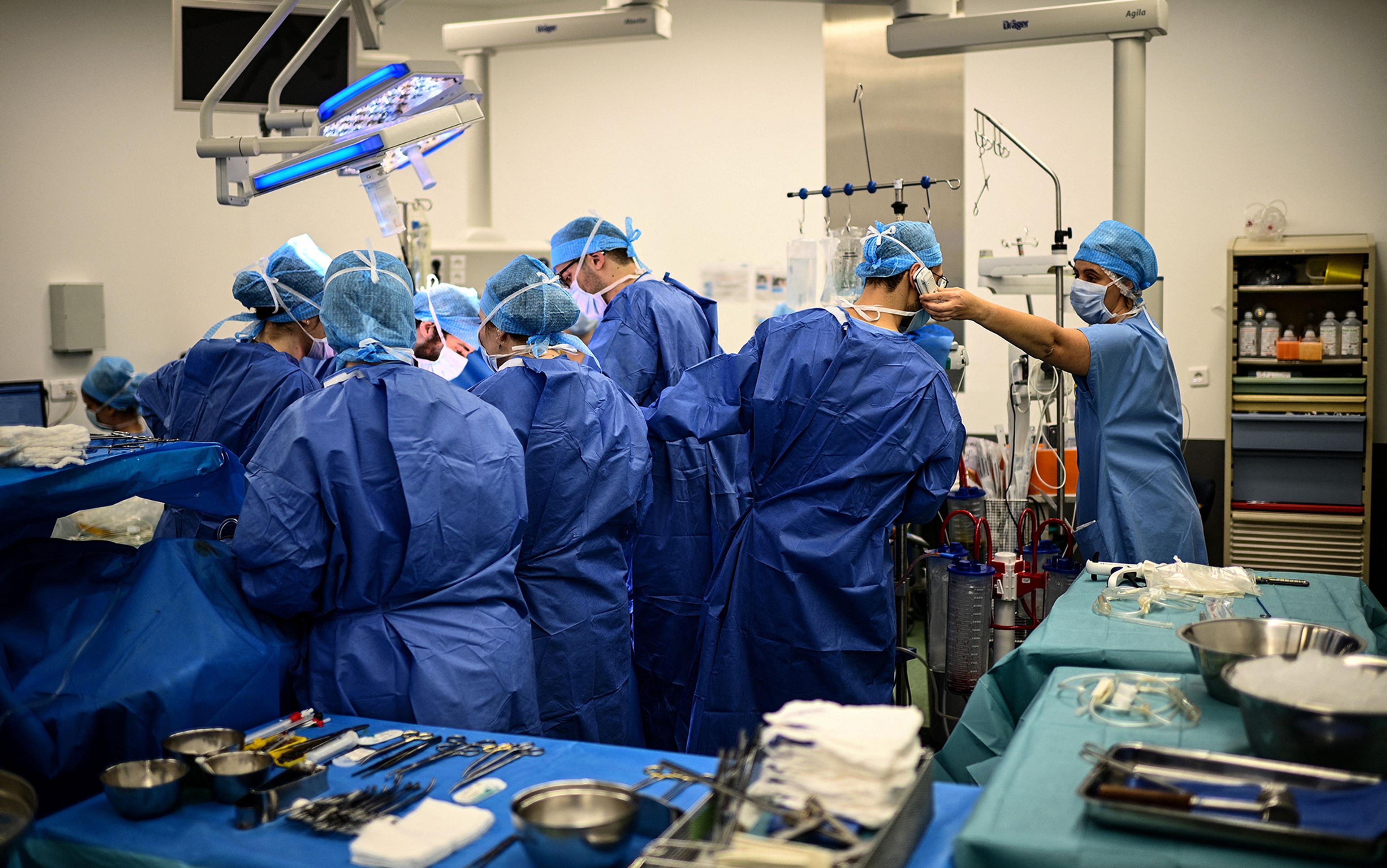
Last hours of an organ donor
In the liminal time when the brain is dead but organs are kept alive, there is an urgent tenderness to medical care
Ronald W Dworkin

The environment
We need to find a way for human societies to prosper while the planet heals. So far we can’t even think clearly about it
Ville Lähde

Alien life is no joke
Not long ago the search for extraterrestrials was considered laughable nonsense. Today, it’s serious and scientific

History of ideas
Reimagining balance
In the Middle Ages, a new sense of balance fundamentally altered our understanding of nature and society

Why do the building blocks of life possess a mysterious symmetry?

Return of the descendants
I migrated to my ancestral homeland in a search for identity. It proved to be a humbling experience in (un)belonging
Jessica Buchleitner

Tiny, entangled universes that form or fizzle out – a theory of the quantum multiverse

Neuroscience
How to make a map of smell
We can split light by a prism, sounds by tones, but surely the world of odour is too complex and personal? Strangely, no
Jason Castro

The history of astronomy is a history of conjuring intelligent life where it isn’t
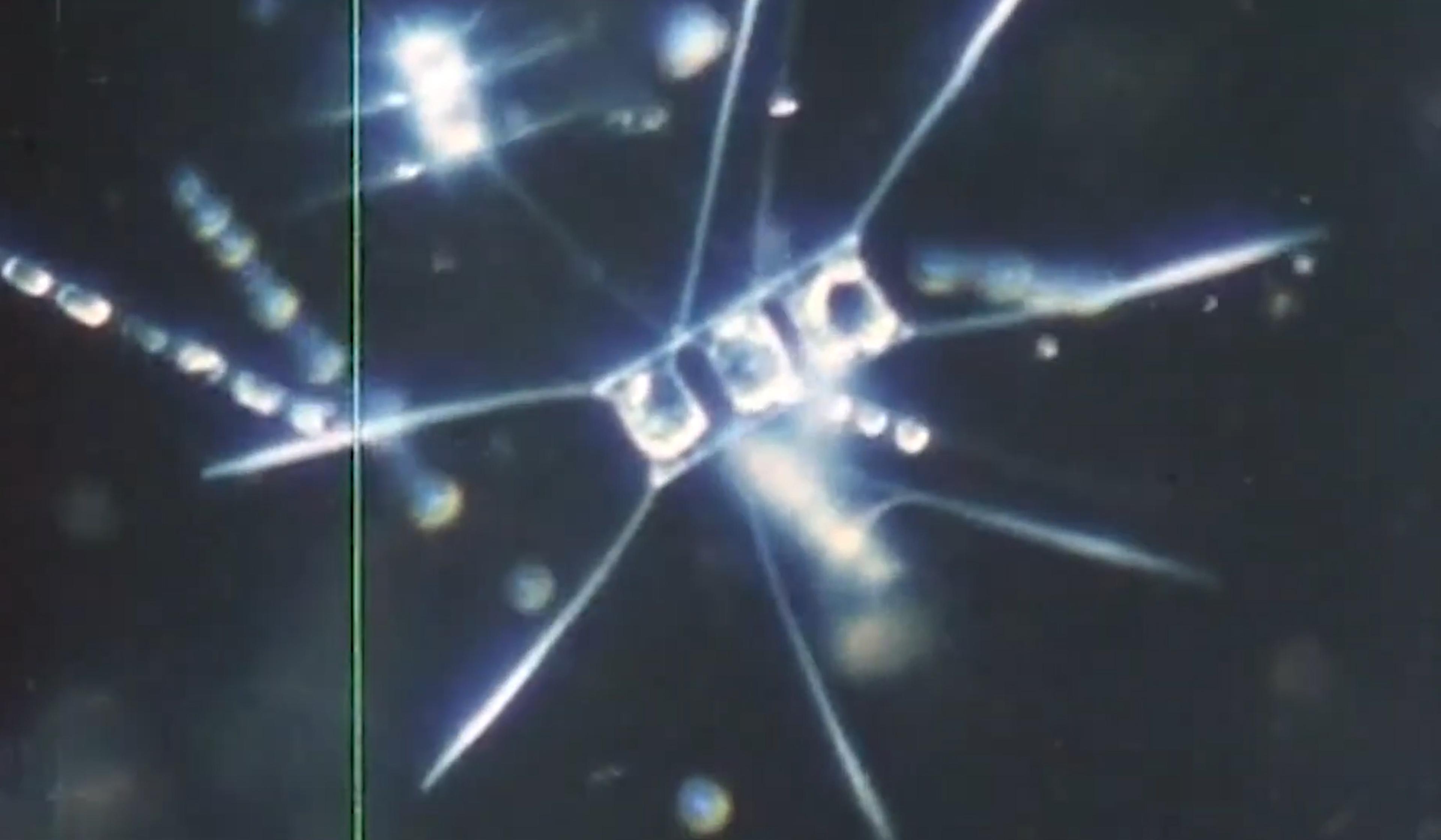
Metaphysics
Simple entities in universal harmony – Leibniz’s evocative perspective on reality

Biography and memoir
Passed over as the first Black astronaut, Ed Dwight carved out an impressive second act
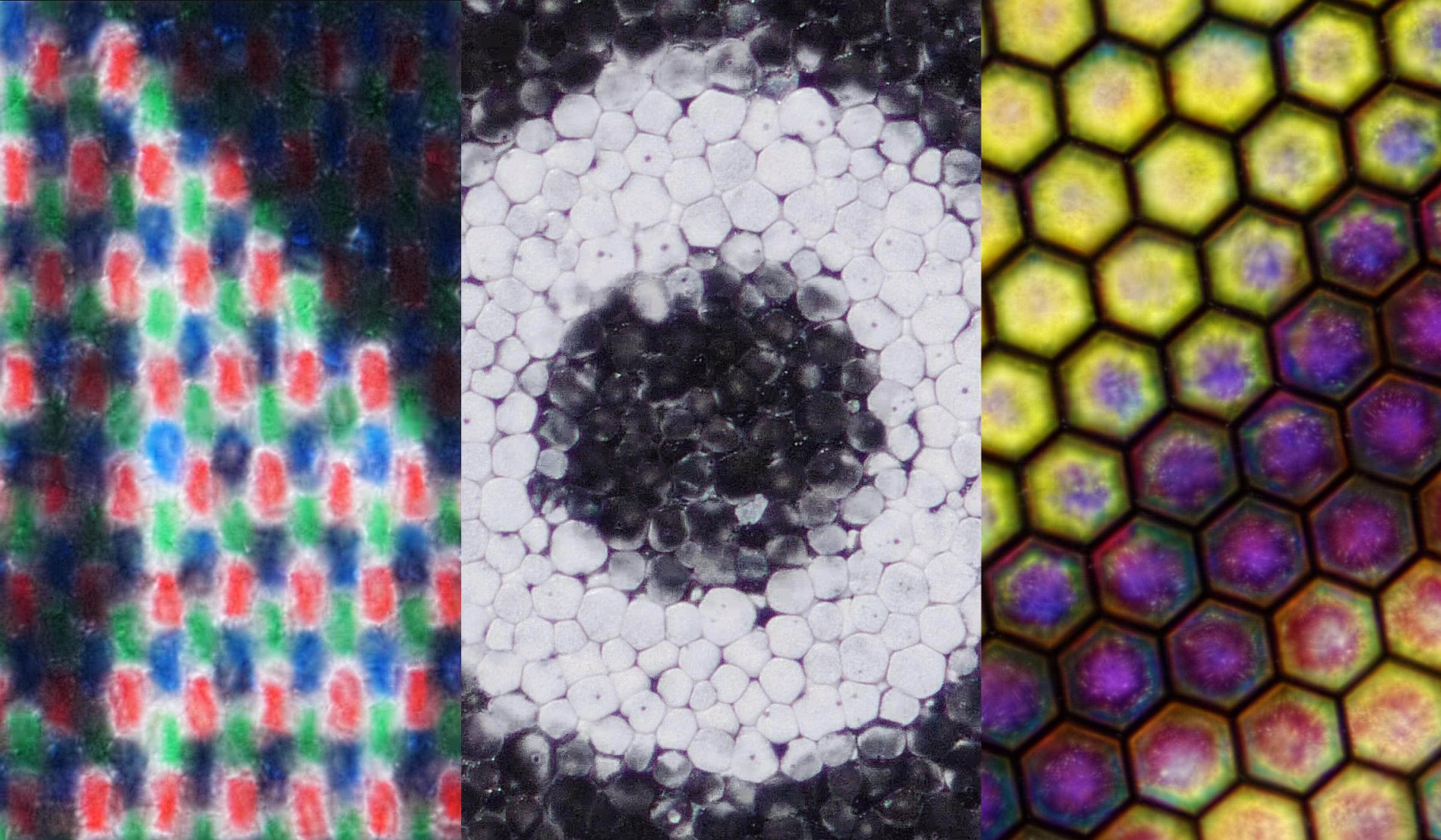
Engineering
A close-up look at electronic paper reveals its exquisite patterns – and limitations
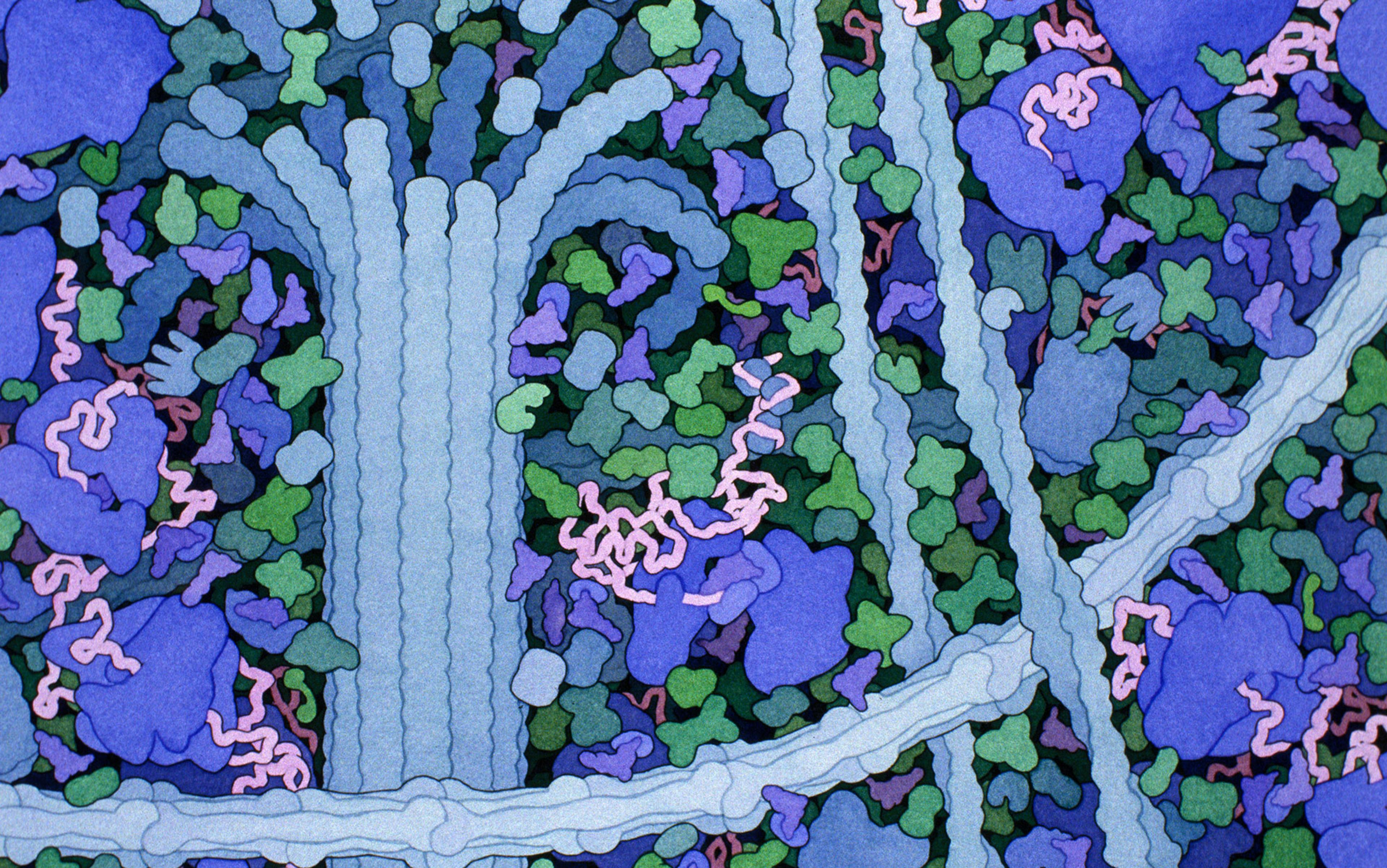
The cell is not a factory
Scientific narratives project social hierarchies onto nature. That’s why we need better metaphors to describe cellular life
Charudatta Navare
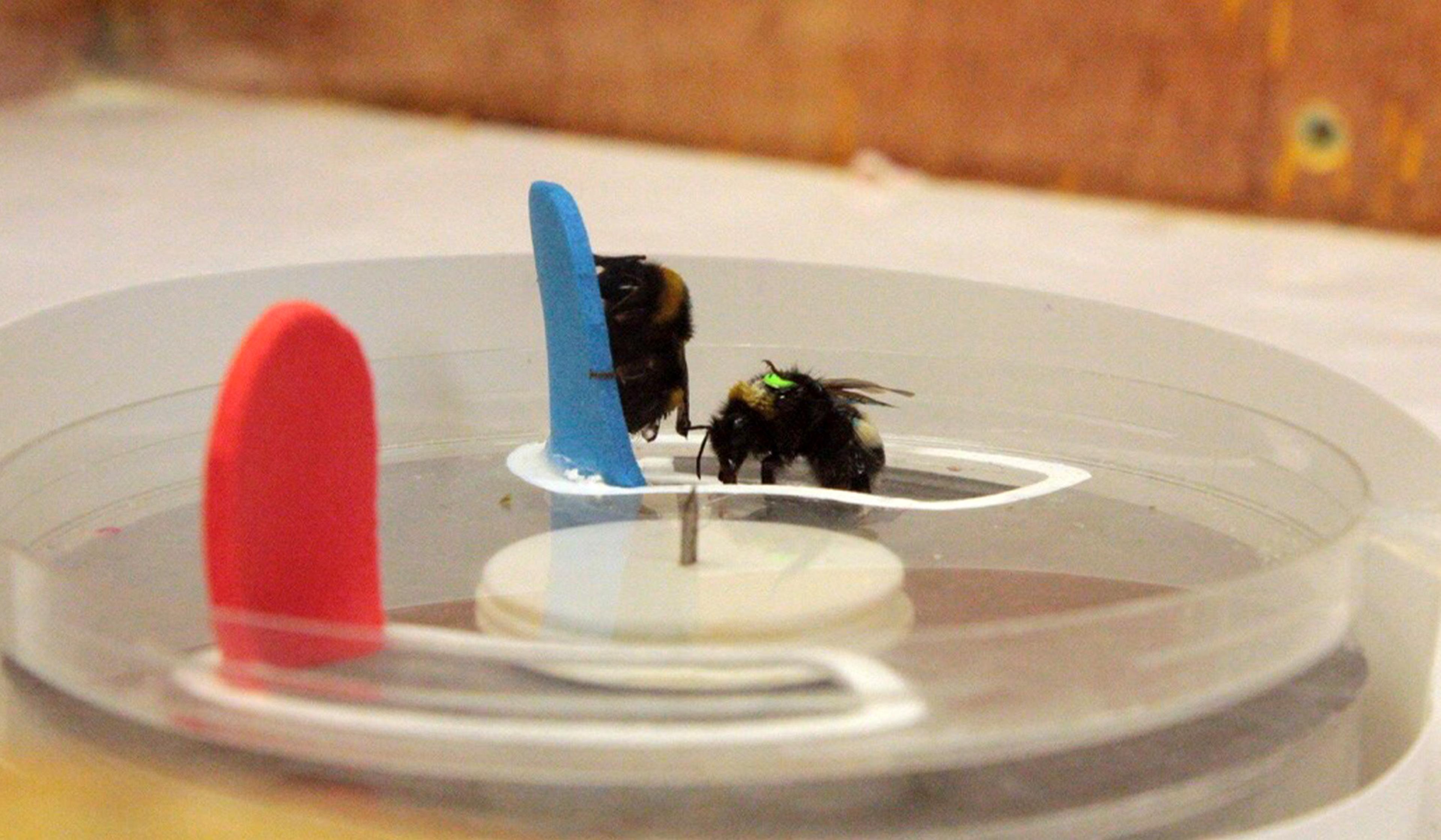
Cognition and intelligence
What’s this buzz about bees having culture? Inside a groundbreaking experiment
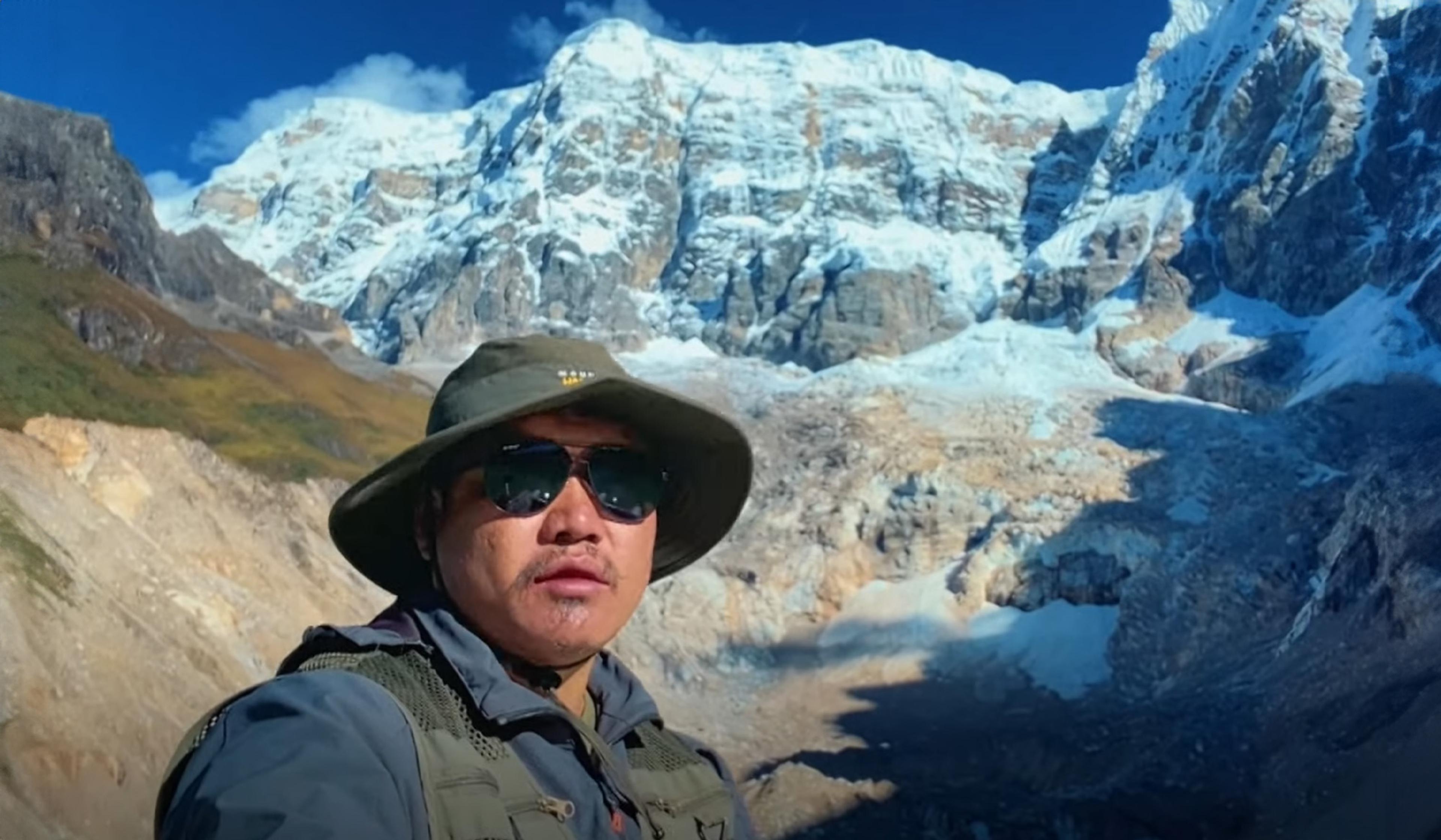
Earth science and climate
The only man permitted in Bhutan’s sacred mountains chronicles humanity’s impact
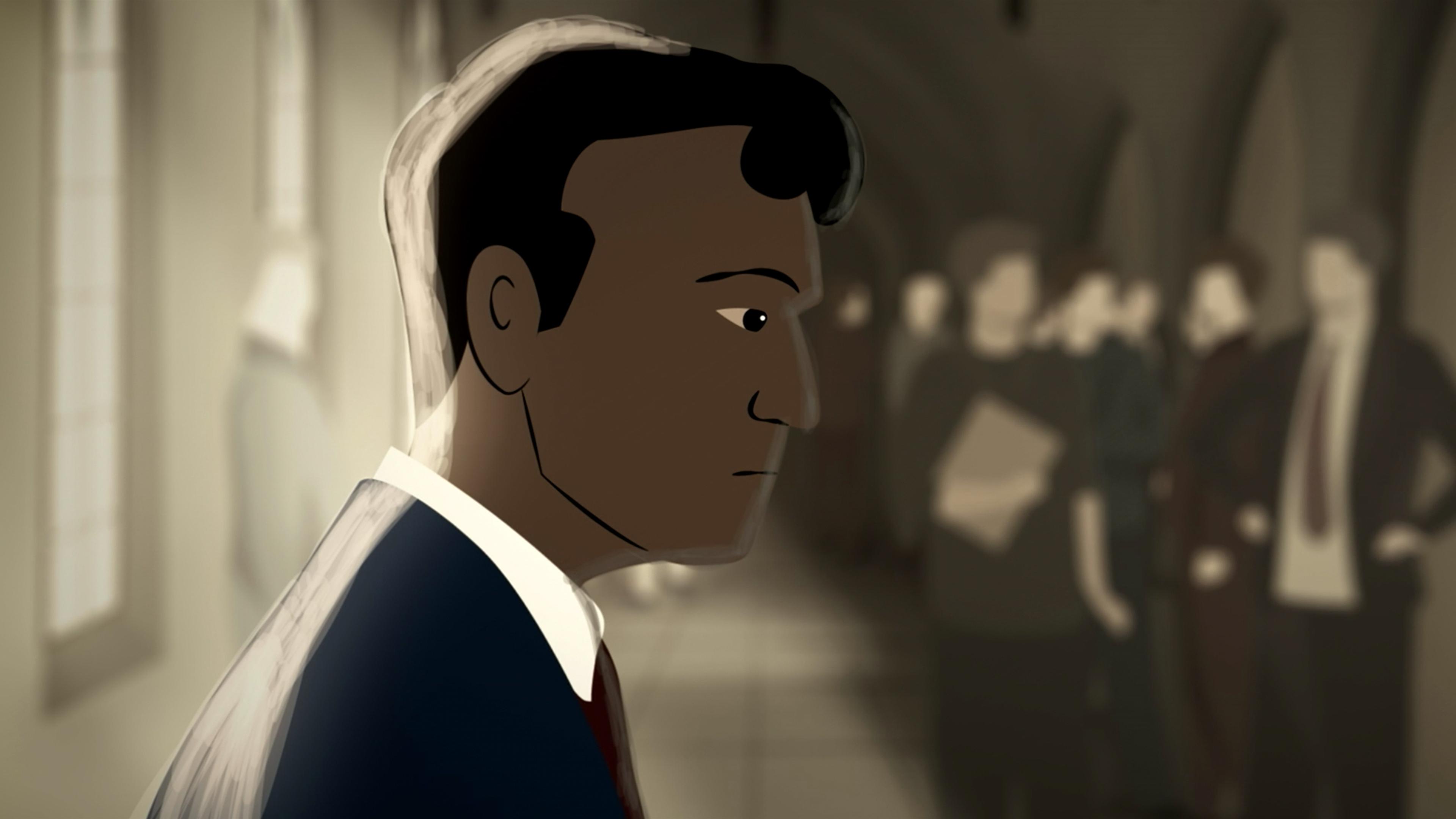
The Indian astronomer whose innovative work on black holes was mocked at Cambridge
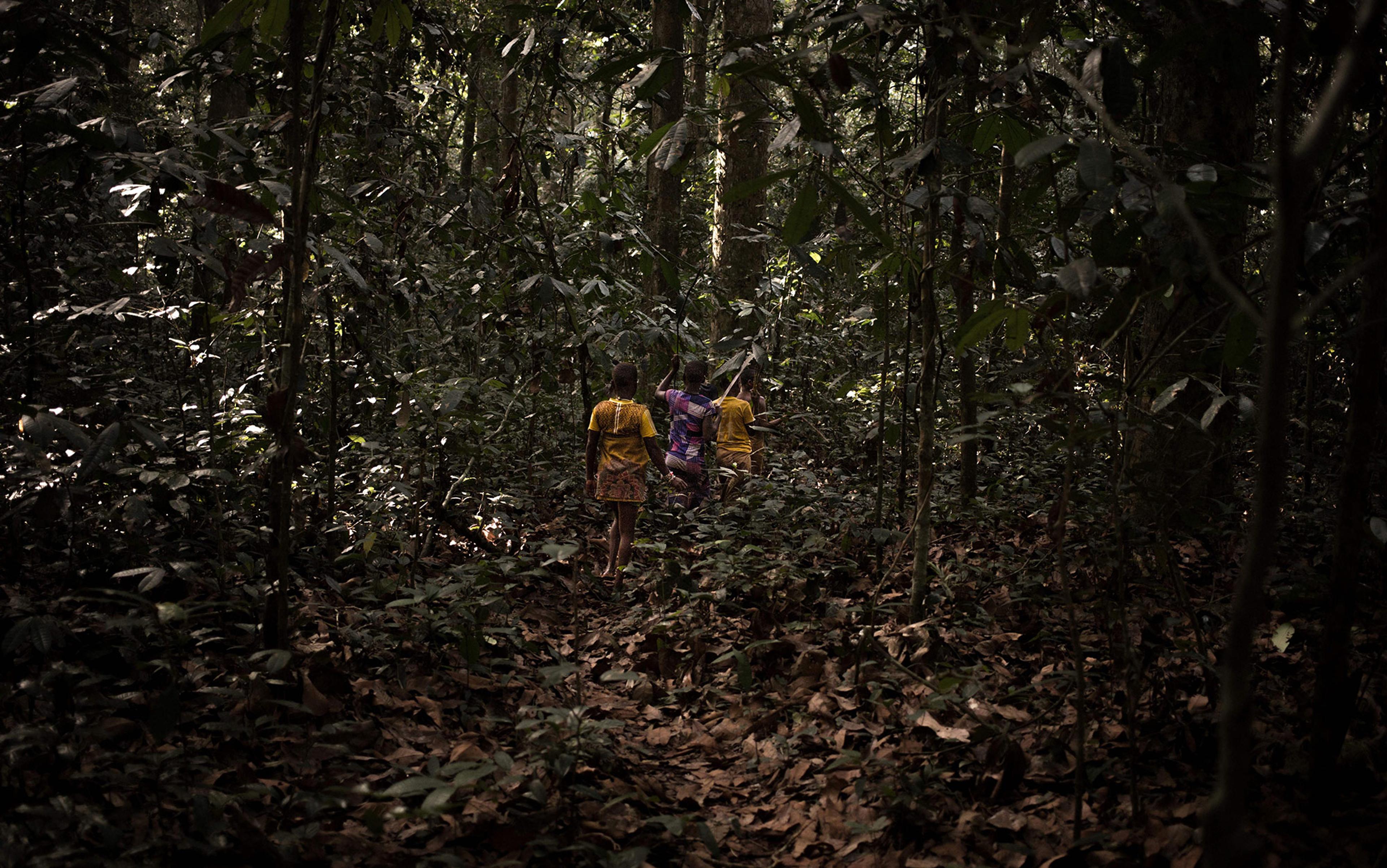
Anthropology
Societies of perpetual movement
Why do hunter-gatherers refuse to be sedentary? New answers are emerging from the depths of the Congolese rainforest
Cecilia Padilla-Iglesias

Rethinking the homunculus
When we discovered that the brain contained a map of the body it revolutionised neuroscience. But it’s time for an update
Moheb Costandi

Top Science News
Latest top headlines.
- Neuroscience
- Sleep Disorders
- Brain Injury
- Language Acquisition
- Staying Healthy
- Organic Chemistry
- Nature of Water
- Space Exploration
- Black Holes
- Photography
- Consumer Electronics
- Insects (including Butterflies)
- Pests and Parasites
- Global Warming
- Snow and Avalanches
- Environmental Policies
- Environmental Issues
- Resting Brain: Neurons Rehearse for Future
- What Negative Adjectives Mean to Your Brain
- 'Living Bioelectronics' Can Sense and Heal Skin
- Food Groups Based On Level of Processing
Top Physical/Tech
- Observing Single Molecules
- Volcanic Events On Jupiter's Moon Io: High Res
- Some Black Holes Survive in Globular Clusters
- Computer Vision, Machine Learning Aid Driving
Top Environment
- A Greener, More Effective Way to Kill Termites
- One Bright Spot Among Melting Glaciers
- Extinct Saber-Toothed Cat On Texas Coast
- People Altering Decomposition in Waterways
Health News
Latest health headlines.
- Pharmacology
- Epigenetics
- Pregnancy and Childbirth
- Cold and Flu
- Bird Flu Research
- Breast Cancer
- Brain Tumor
- Huntington's Disease
- Human Biology
- Child Development
- Epilepsy Research
- Workplace Health
- Computer Modeling
- Neural Interfaces
- Brain-Computer Interfaces
- Popular Culture
- Media and Entertainment
- Social Psychology
- Relationships
- Borderline Personality Disorder
- Diet and Weight Loss
Health & Medicine
- Prenatal Effects from Amphetamines
- Antibodies May Aid Effort to Fight Influenza B
- Foretelling Breast Cancer
- Toward Safer Drugs and Disease Prevention
Mind & Brain
- Infants Hear More Speech Than Music at Home
- Epilepsy Medications During Pregnancy
- Reducing Stress of Adults With Dementia
- Align AI Models With Human Brain Activity
Living Well
- New Anti-Counterfeit Technique
- Exploring Mouthfeel of Food With a Microscope
- YouTubers Cheer You Up More Than Casual Friends
- Intermittent Fasting for Better Gut Health
Physical/Tech News
Latest physical/tech headlines.
- Materials Science
- Engineering and Construction
- Civil Engineering
- Energy and the Environment
- Renewable Energy
- Environmental Science
- Astrophysics
- Asteroids, Comets and Meteors
- Solar System
- Space Missions
- Drought Research
- Environmental Awareness
- Quantum Computers
- Computers and Internet
- Quantum Physics
- Educational Psychology
- Infant and Preschool Learning
Matter & Energy
- Understanding Iron and Aluminum Alloy
- Innovative Bird-Eye-Inspired Camera
- Hydrogen from Agricultural Waste
- The Thinnest Lens On Earth
Space & Time
- Most Distant Known Galaxy
- The Case of the Missing Black Holes
- Moonlets Stuck Together Orbit 'Dinky' Asteroid
- Precise Maps of the Moon's Surface
Computers & Math
- High Groundwater Depletion Risk
- Quantum Computing and Protein Structure
- Significant Progress Towards Quantum Advantage
- Kids' Visual Experience: Computer Vision ...
Environment News
Latest environment headlines.
- Wild Animals
- Coral Reefs
- Ecology Research
- Dengue Fever
- Urbanization
- Land Management
- Agriculture and Food
- Natural Disasters
- Earthquakes
- Sustainability
- Origin of Life
- Charles Darwin
- Paleontology
- Developmental Biology
- Behavioral Science
Plants & Animals
- Fish in Mine-Polluted Rivers Genetically ...
- New Coral Disease Forecasting System
- Anticipating Dengue Outbreaks
- Rapid Urbanization Threatens Biodiversity
Earth & Climate
- Post-Disaster Pollution Levels
- Safeguarding Urban Infrastructure
- Abandoned Farmlands Fighting Climate Change
- Biobased Building Materials Less Sustainable
Fossils & Ruins
- Life Writes a Multibillion-Year Epic
- Historic Iceberg Surges
- A New Dinosaur from Zimbabwe
- Measuring Embryo Development
Society/Education News
Latest society/education headlines.
- New Species
- Wind Energy
- Resource Shortage
- Food and Agriculture
- Today's Healthcare
- Patient Education and Counseling
- Health Policy
- Child Psychology
- K-12 Education
- Mental Health
- ADD and ADHD
- Intelligence
- Industrial Relations
- Retail and Services
- Privacy Issues
- Robotics Research
Science & Society
- Marine Protected Areas Not in Best Places
- Wind Farms Are Cheaper Than You Think
- Cold Supply Chains for Food: Huge Savings
- Pharmacists Effectively Treat Minor Illnesses
Education & Learning
- More School Entry Disadvantages at Age 16-17
- ADHD and Emotional Problems
- How Practice Forms New Memory Pathways
- No Inner Voice Linked to Poorer Verbal Memory
Business & Industry
- GBGI Infrastructure Mitigating Urban Heat
- Stress and Busy Bragging at Work
- Hospitality Sector: AI as Concierge
- Robot-Phobia and Labor Shortages
- Martian Meteorites Inform Red Planet's Structure
Trending Topics
Strange & offbeat, about this site.
ScienceDaily features breaking news about the latest discoveries in science, health, the environment, technology, and more -- from leading universities, scientific journals, and research organizations.
Visitors can browse more than 500 individual topics, grouped into 12 main sections (listed under the top navigational menu), covering: the medical sciences and health; physical sciences and technology; biological sciences and the environment; and social sciences, business and education. Headlines and summaries of relevant news stories are provided on each topic page.
Stories are posted daily, selected from press materials provided by hundreds of sources from around the world. Links to sources and relevant journal citations (where available) are included at the end of each post.
For more information about ScienceDaily, please consult the links listed at the bottom of each page.
- Top Courses
- Online Degrees
- Find your New Career
- Join for Free

Writing in the Sciences
Taught in English
Some content may not be translated
Financial aid available
500,925 already enrolled
Gain insight into a topic and learn the fundamentals

Instructor: Dr. Kristin Sainani
(8,413 reviews)
Skills you'll gain
- Medical Writing
- Science Communication
Details to know

Add to your LinkedIn profile
See how employees at top companies are mastering in-demand skills

Earn a career certificate
Add this credential to your LinkedIn profile, resume, or CV
Share it on social media and in your performance review

There are 8 modules in this course
This course teaches scientists to become more effective writers, using practical examples and exercises. Topics include: principles of good writing, tricks for writing faster and with less anxiety, the format of a scientific manuscript, peer review, grant writing, ethical issues in scientific publication, and writing for general audiences.
Unit 1 introduces the course and reviews key principles of effective writing. In particular, you will practice cutting clutter from writing.
What's included
7 videos 1 quiz
7 videos • Total 78 minutes
- 1.1: Introduction; principles of effective writing • 11 minutes • Preview module
- 1.2: Examples of what not to do • 6 minutes
- 1.3: Overview, principles of effective writing • 6 minutes
- 1.4: Cut the clutter • 17 minutes
- 1.5: Cut the clutter, more tricks • 4 minutes
- 1.6: Practicing cutting clutter • 9 minutes
- Demo Edit 1 (Optional) • 23 minutes
1 quiz • Total 60 minutes
- Unit 1 Homework • 60 minutes
Unit 2 focuses on writing with strong, active verbs. Lessons include how to: write in the active voice; avoid turning verbs into nouns; choose strong verbs; and get to the main verb of a sentence quickly.
7 videos • Total 87 minutes
- 2.1: Use the active voice • 16 minutes • Preview module
- 2.2: Is it really OK to use "We" and "I" • 5 minutes
- 2.3: Active voice practice • 5 minutes
- 2.4: Write with verbs • 8 minutes
- 2.5: Practice examples • 20 minutes
- 2.6: A few grammar tips • 10 minutes
- Demo Edit 2 (Optional) • 20 minutes
- Unit 2 Homework • 60 minutes
Unit 3 reviews how to vary sentence structure and write strong paragraphs. You will practice using the dash, colon, semi-colon, and parentheses, as well as writing well-organized and concise paragraphs.
8 videos 1 quiz 1 peer review
8 videos • Total 105 minutes
- 3.1: Experiment with punctuation • 28 minutes • Preview module
- 3.2: Practice, colon and dash • 6 minutes
- 3.3: Parallelism • 5 minutes
- 3.4: Paragraphs • 9 minutes
- 3.5: Paragraph Editing I • 13 minutes
- 3.6: Paragraph Editing II • 11 minutes
- Module 3.7: A few more tips • 7 minutes
- Demo Edit 3 (Optional) • 22 minutes
- Unit 3 Homework • 60 minutes
1 peer review • Total 60 minutes
- Paragraph editing exercise • 60 minutes
Unit 4 reviews the writing process. I will give you tips for making the writing process easier, more efficient, and more organized.
7 videos • Total 80 minutes
- 4.1 More paragraph practice • 16 minutes • Preview module
- 4.2 Overview of the writing process • 7 minutes
- 4.3 The pre-writing step • 11 minutes
- 4.4 The writing step • 7 minutes
- 4.5: Revision • 5 minutes
- 4.6: Checklist for the final draft • 12 minutes
- Demo Edit 4 (Optional) • 20 minutes
1 quiz • Total 180 minutes
- Unit 4 Homework • 180 minutes
Unit 5 reviews the sections of a scientific manuscript. You will learn how to format tables and figures, and how to write results, methods, introduction, and discussion sections.
9 videos 1 quiz
9 videos • Total 136 minutes
- 5.1: Tables and Figures • 36 minutes • Preview module
- 5.2: Results • 11 minutes
- 5.3: Practice writing results • 6 minutes
- 5.4: Methods • 13 minutes
- 5.5: Introduction • 15 minutes
- 5.6: Introduction practice • 4 minutes
- 5.7: Discussion • 21 minutes
- 5.8: Abstract • 6 minutes
- Demo Edit 5 (Optional) • 21 minutes
1 quiz • Total 45 minutes
- Unit 5 Homework • 45 minutes
Unit 6 discusses the peer review process, as well as ethical issues in scientific publishing. You will learn how to avoid plagiarism, determine authorship, submit a paper, write a peer review, and avoid predatory journals.
9 videos 1 quiz 1 peer review
9 videos • Total 143 minutes
- 6.1: Plagiarism • 17 minutes • Preview module
- 6.2: Authorship • 10 minutes
- 6.3: The Submission Process • 11 minutes
- 6.4: Interview with Dr. Bradley Efron • 14 minutes
- 6.5: Interview with Dr. George Lundberg • 27 minutes
- 6.6: Interview with Dr. Gary Friedman • 22 minutes
- 6.7: Doing a peer review • 13 minutes
- 6.8: Predatory journals • 8 minutes
- Demo Edit 6 (Optional) • 17 minutes
1 quiz • Total 20 minutes
- Unit 6 Homework • 20 minutes
1 peer review • Total 300 minutes
- Essay • 300 minutes
Unit 7 reviews types of writing beyond original research manuscripts. You will learn how to write review papers, grants, letters of recommendation, and personal essays.
7 videos • Total 103 minutes
- 7.1: Writing a review article • 13 minutes • Preview module
- 7.2: Grants I • 13 minutes
- 7.3: Grants II • 11 minutes
- 7.4: Grants III • 11 minutes
- 7.5 Writing letters of recommendation • 20 minutes
- 7.6: Writing personal statements • 18 minutes
- Demo Edit 7 (Optional) • 14 minutes
- Unit 7 Homework • 45 minutes
Unit 8 reviews communication with broader audiences. You will learn how work with the media, be interviewed, conduct an interview, and write about science for general audiences.
8 videos • Total 124 minutes
- 8.1: Talking with the media • 13 minutes • Preview module
- 8.2: Panel Interview • 22 minutes
- 8.3: Writing for general audiences • 21 minutes
- 8.4: Writing a science news story • 10 minutes
- 8.5: Interviewing a scientist • 16 minutes
- 8.6: Social media • 20 minutes
- 8.7: Concluding Remarks • 0 minutes
- Demo Edit 8 (Optional) • 19 minutes
- Unit 8 Homework • 60 minutes
- Lay summary exercise • 60 minutes
Instructor ratings
We asked all learners to give feedback on our instructors based on the quality of their teaching style.

The Leland Stanford Junior University, commonly referred to as Stanford University or Stanford, is an American private research university located in Stanford, California on an 8,180-acre (3,310 ha) campus near Palo Alto, California, United States.
Recommended if you're interested in Basic Science

Lund University
Writing in English at University

École Polytechnique
How to Write and Publish a Scientific Paper (Project-Centered Course)
Yale University
Understanding Medical Research: Your Facebook Friend is Wrong
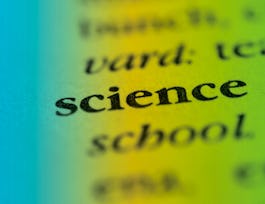
University of Alberta
Science Literacy
Why people choose coursera for their career.

Learner reviews
Showing 3 of 8413
8,413 reviews
Reviewed on Jan 18, 2020
a fantastic course! I've recommended it to my colleagues and even my supervisor! Every scientist of today should take this course and perhaps re-read when you want to start writing it! JUST LOVE IT!
Reviewed on Oct 10, 2020
This course was excellent! I have learnt a lot in just 8 weeks. I am excited to apply this knowledge to my field. I was actually disappointed when I reached the end of the course, because It was fun!
Reviewed on Nov 28, 2021
Extremely informative and well written. I loved the author's way of explaining. I really enjoyed taking this course and learnt a great deal. Would love to take more courses from the same instructor.
New to Basic Science? Start here.

Open new doors with Coursera Plus
Unlimited access to 7,000+ world-class courses, hands-on projects, and job-ready certificate programs - all included in your subscription
Advance your career with an online degree
Earn a degree from world-class universities - 100% online
Join over 3,400 global companies that choose Coursera for Business
Upskill your employees to excel in the digital economy
Frequently asked questions
Are there other versions of this course available.
Yes. There is a Stanford Lagunita offering, and a Continuing Medical Education (CME) offering. The different offerings are described below:
The Stanford Lagunita offering is self-paced, unmoderated, includes self assessment assignments, and offers you the ability to earn a free Statement of Accomplishment.
The Coursera offering is provided on a monthly basis, is more moderated, includes peer assessment assignments, and offers you the ability to earn a certificate of completion for a fee.
The CME offering can be used to earn Continuing Medical Education credits.
When will I have access to the lectures and assignments?
Access to lectures and assignments depends on your type of enrollment. If you take a course in audit mode, you will be able to see most course materials for free. To access graded assignments and to earn a Certificate, you will need to purchase the Certificate experience, during or after your audit. If you don't see the audit option:
The course may not offer an audit option. You can try a Free Trial instead, or apply for Financial Aid.
The course may offer 'Full Course, No Certificate' instead. This option lets you see all course materials, submit required assessments, and get a final grade. This also means that you will not be able to purchase a Certificate experience.
What will I get if I purchase the Certificate?
When you purchase a Certificate you get access to all course materials, including graded assignments. Upon completing the course, your electronic Certificate will be added to your Accomplishments page - from there, you can print your Certificate or add it to your LinkedIn profile. If you only want to read and view the course content, you can audit the course for free.
What is the refund policy?
You will be eligible for a full refund until two weeks after your payment date, or (for courses that have just launched) until two weeks after the first session of the course begins, whichever is later. You cannot receive a refund once you’ve earned a Course Certificate, even if you complete the course within the two-week refund period. See our full refund policy Opens in a new tab .
Is financial aid available?
Yes. In select learning programs, you can apply for financial aid or a scholarship if you can’t afford the enrollment fee. If fin aid or scholarship is available for your learning program selection, you’ll find a link to apply on the description page.
More questions
Subscribe or renew today
Every print subscription comes with full digital access
Science News

Bird flu can infect cats. What does that mean for their people?
Pet owners can take precautions to avoid H5N1, such as keeping cats indoors and making sure they don’t eat raw meat or milk.

The largest known genome belongs to a tiny fern

It’s a big year for cicadas. Here’s what to know about this year’s emergence

Warm water is sneaking underneath the Thwaites Glacier — and rapidly melting it

A built-in pocket protector keeps sawfish from ‘sword fighting’ in the womb

Scientists propose a hunt for never-before-seen ‘tauonium’ atoms

Privacy remains an issue with several women’s health apps
Trending stories.

Toxins from the world’s longest animal can kill cockroaches

Sign Up For the Latest from Science News
Headlines and summaries of the latest Science News articles, delivered to your inbox
Thank you for signing up!
There was a problem signing you up.
Spotlight on Health

Genetic analyses of the bird flu virus unveil its evolution and potential
The H5N1 outbreak in cattle is giving flashbacks to the COVID pandemic. But this time is different.
Burning the stomach lining reduces the ‘hunger hormone’ and cuts weight
Extreme heat will put millions more older adults at risk in the future, from the archives.

Human Behavior: Do Animals Have the Answer
April 27, 1974 Vol. 105 No. #17
Science News Magazine

May 4, 2024 Vol. 205 No. 9
A hidden danger lurks beneath Yellowstone
A vaccine for bees has an unexpected effect, how ötzi the iceman really got his tattoos.

Featured Media

Eavesdropping on fish could help us keep better tabs on underwater worlds
Scientists are on a quest to log all the sounds of fish communication. The result could lead to better monitoring of ecosystems and fish behavior.

Tiny treadmills show how fruit flies walk

Explore a map of the next 15 total solar eclipses

This robot can tell when you’re about to smile — and smile back

Rain Bosworth studies how deaf children experience the world
Follow science news.
- Follow Science News on X
- Follow Science News on Facebook
- Follow Science News on Instagram
More Stories

This marine alga is the first known eukaryote to pull nitrogen from air
During a total solar eclipse, some colors really pop. here’s why.

These are the chemicals that give teens pungent body odor
Here’s why covid-19 isn’t seasonal so far, human embryo replicas have gotten more complex. here’s what you need to know.

As the Arctic tundra warms, soil microbes likely will ramp up CO 2 production
A ruinous hailstorm in spain may have been supercharged by warming seas, three reasons why the ocean’s record-breaking hot streak is devastating.

How a 19th century astronomer can help you watch the total solar eclipse
Jwst spies hints of a neutron star left behind by supernova 1987a, astronomers are puzzled over an enigmatic companion to a pulsar.

Here’s how ice may get so slippery
Newfound ‘altermagnets’ shatter the magnetic status quo , separating science fact from fiction in netflix’s ‘3 body problem’ , health & medicine.

Malnutrition’s effects on the body don’t end when food arrives
Young people’s use of diabetes and weight loss drugs is up 600 percent , human body lice could harbor the plague and spread it through biting .

A weaker magnetic field may have paved the way for marine life to go big
Polar forests may have just solved a solar storm mystery, science & society.

Language models may miss signs of depression in Black people’s Facebook posts
In ‘get the picture,’ science helps explore the meaning of art, what science news saw during the solar eclipse.
Subscribers, enter your e-mail address for full access to the Science News archives and digital editions.
Not a subscriber? Become one now .
- Share full article
Advertisement
Supported by
Guest Essay
The Long-Overlooked Molecule That Will Define a Generation of Science

By Thomas Cech
Dr. Cech is a biochemist and the author of the forthcoming book “The Catalyst: RNA and the Quest to Unlock Life’s Deepest Secrets,” from which this essay is adapted.
From E=mc² to splitting the atom to the invention of the transistor, the first half of the 20th century was dominated by breakthroughs in physics.
Then, in the early 1950s, biology began to nudge physics out of the scientific spotlight — and when I say “biology,” what I really mean is DNA. The momentous discovery of the DNA double helix in 1953 more or less ushered in a new era in science that culminated in the Human Genome Project, completed in 2003, which decoded all of our DNA into a biological blueprint of humankind.
DNA has received an immense amount of attention. And while the double helix was certainly groundbreaking in its time, the current generation of scientific history will be defined by a different (and, until recently, lesser-known) molecule — one that I believe will play an even bigger role in furthering our understanding of human life: RNA.
You may remember learning about RNA (ribonucleic acid) back in your high school biology class as the messenger that carries information stored in DNA to instruct the formation of proteins. Such messenger RNA, mRNA for short, recently entered the mainstream conversation thanks to the role they played in the Covid-19 vaccines. But RNA is much more than a messenger, as critical as that function may be.
Other types of RNA, called “noncoding” RNAs, are a tiny biological powerhouse that can help to treat and cure deadly diseases, unlock the potential of the human genome and solve one of the most enduring mysteries of science: explaining the origins of all life on our planet.
Though it is a linchpin of every living thing on Earth, RNA was misunderstood and underappreciated for decades — often dismissed as nothing more than a biochemical backup singer, slaving away in obscurity in the shadows of the diva, DNA. I know that firsthand: I was slaving away in obscurity on its behalf.
In the early 1980s, when I was much younger and most of the promise of RNA was still unimagined, I set up my lab at the University of Colorado, Boulder. After two years of false leads and frustration, my research group discovered that the RNA we’d been studying had catalytic power. This means that the RNA could cut and join biochemical bonds all by itself — the sort of activity that had been thought to be the sole purview of protein enzymes. This gave us a tantalizing glimpse at our deepest origins: If RNA could both hold information and orchestrate the assembly of molecules, it was very likely that the first living things to spring out of the primordial ooze were RNA-based organisms.
That breakthrough at my lab — along with independent observations of RNA catalysis by Sidney Altman at Yale — was recognized with a Nobel Prize in 1989. The attention generated by the prize helped lead to an efflorescence of research that continued to expand our idea of what RNA could do.
In recent years, our understanding of RNA has begun to advance even more rapidly. Since 2000, RNA-related breakthroughs have led to 11 Nobel Prizes. In the same period, the number of scientific journal articles and patents generated annually by RNA research has quadrupled. There are more than 400 RNA-based drugs in development, beyond the ones that are already in use. And in 2022 alone, more than $1 billion in private equity funds was invested in biotechnology start-ups to explore frontiers in RNA research.
What’s driving the RNA age is this molecule’s dazzling versatility. Yes, RNA can store genetic information, just like DNA. As a case in point, many of the viruses (from influenza to Ebola to SARS-CoV-2) that plague us don’t bother with DNA at all; their genes are made of RNA, which suits them perfectly well. But storing information is only the first chapter in RNA’s playbook.
Unlike DNA, RNA plays numerous active roles in living cells. It acts as an enzyme, splicing and dicing other RNA molecules or assembling proteins — the stuff of which all life is built — from amino acid building blocks. It keeps stem cells active and forestalls aging by building out the DNA at the ends of our chromosomes.
RNA discoveries have led to new therapies, such as the use of antisense RNA to help treat children afflicted with the devastating disease spinal muscular atrophy. The mRNA vaccines, which saved millions of lives during the Covid pandemic, are being reformulated to attack other diseases, including some cancers . RNA research may also be helping us rewrite the future; the genetic scissors that give CRISPR its breathtaking power to edit genes are guided to their sites of action by RNAs.
Although most scientists now agree on RNA's bright promise, we are still only beginning to unlock its potential. Consider, for instance, that some 75 percent of the human genome consists of dark matter that is copied into RNAs of unknown function. While some researchers have dismissed this dark matter as junk or noise, I expect it will be the source of even more exciting breakthroughs.
We don’t know yet how many of these possibilities will prove true. But if the past 40 years of research have taught me anything, it is never to underestimate this little molecule. The age of RNA is just getting started.
Thomas Cech is a biochemist at the University of Colorado, Boulder; a recipient of the Nobel Prize in Chemistry in 1989 for his work with RNA; and the author of “The Catalyst: RNA and the Quest to Unlock Life’s Deepest Secrets,” from which this essay is adapted.
The Times is committed to publishing a diversity of letters to the editor. We’d like to hear what you think about this or any of our articles. Here are some tips . And here’s our email: [email protected] .
Follow the New York Times Opinion section on Facebook , Instagram , TikTok , WhatsApp , X and Threads .
Science Essay
Learn How to Write an A+ Science Essay
11 min read

People also read
150+ Engaging Science Essay Topics To Hook Your Readers
Read 13 Impressive Science Essay Examples And Get Inspired
Science Fiction Essay: Examples & Easy Steps Guide
Essay About Science and Technology| Tips & Examples
Essay About Science in Everyday Life - Samples & Writing Tips
Check Out 5 Impressive Essay About Science Fair Examples
Did you ever imagine that essay writing was just for students in the Humanities? Well, think again!
For science students, tackling a science essay might seem challenging, as it not only demands a deep understanding of the subject but also strong writing skills.
However, fret not because we've got your back!
With the right steps and tips, you can write an engaging and informative science essay easily!
This blog will take you through all the important steps of writing a science essay, from choosing a topic to presenting the final work.
So, let's get into it!
- 1. What Is a Science Essay?
- 2. How To Write a Science Essay?
- 3. How to Structure a Science Essay?
- 4. Science Essay Examples
- 5. How to Choose the Right Science Essay Topic
- 6. Science Essay Topics
- 7. Science Essay Writing Tips
What Is a Science Essay?
A science essay is an academic paper focusing on a scientific topic from physics, chemistry, biology, or any other scientific field.
Science essays are mostly expository. That is, they require you to explain your chosen topic in detail. However, they can also be descriptive and exploratory.
A descriptive science essay aims to describe a certain scientific phenomenon according to established knowledge.
On the other hand, the exploratory science essay requires you to go beyond the current theories and explore new interpretations.
So before you set out to write your essay, always check out the instructions given by your instructor. Whether a science essay is expository or exploratory must be clear from the start. Or, if you face any difficulty, you can take help from a science essay writer as well.
Moreover, check out this video to understand scientific writing in detail.
Now that you know what it is, let's look at the steps you need to take to write a science essay.

Paper Due? Why Suffer? That's our Job!
How To Write a Science Essay?
Writing a science essay is not as complex as it may seem. All you need to do is follow the right steps to create an impressive piece of work that meets the assigned criteria.
Here's what you need to do:

Choose Your Topic
A good topic forms the foundation for an engaging and well-written essay. Therefore, you should ensure that you pick something interesting or relevant to your field of study.
To choose a good topic, you can brainstorm ideas relating to the subject matter. You may also find inspiration from other science essays or articles about the same topic.
Conduct Research
Once you have chosen your topic, start researching it thoroughly to develop a strong argument or discussion in your essay.
Make sure you use reliable sources and cite them properly . You should also make notes while conducting your research so that you can reference them easily when writing the essay. Or, you can get expert assistance from an essay writing service to manage your citations.
Create an Outline
A good essay outline helps to organize the ideas in your paper. It serves as a guide throughout the writing process and ensures you don’t miss out on important points.
An outline makes it easier to write a well-structured paper that flows logically. It should be detailed enough to guide you through the entire writing process.
However, your outline should be flexible, and it's sometimes better to change it along the way to improve your structure.
Start Writing
Once you have a good outline, start writing the essay by following your plan.
The first step in writing any essay is to draft it. This means putting your thoughts down on paper in a rough form without worrying about grammar or spelling mistakes.
So begin your essay by introducing the topic, then carefully explain it using evidence and examples to support your argument.
Don't worry if your first draft isn't perfect - it's just the starting point!
Proofread & Edit
After finishing your first draft, take time to proofread and edit it for grammar and spelling mistakes.
Proofreading is the process of checking for grammatical mistakes. It should be done after you have finished writing your essay.
Editing, on the other hand, involves reviewing the structure and organization of your essay and its content. It should be done before you submit your final work.
Both proofreading and editing are essential for producing a high-quality essay. Make sure to give yourself enough time to do them properly!
After revising the essay, you should format it according to the guidelines given by your instructor. This could involve using a specific font size, page margins, or citation style.
Most science essays are written in Times New Roman font with 12-point size and double spacing. The margins should be 1 inch on all sides, and the text should be justified.
In addition, you must cite your sources properly using a recognized citation style such as APA , Chicago , or Harvard . Make sure to follow the guidelines closely so that your essay looks professional.
Following these steps will help you create an informative and well-structured science essay that meets the given criteria.
Tough Essay Due? Hire Tough Writers!
How to Structure a Science Essay?
A basic science essay structure includes an introduction, body, and conclusion.
Let's look at each of these briefly.
- Introduction
Your essay introduction should introduce your topic and provide a brief overview of what you will discuss in the essay. It should also state your thesis or main argument.
For instance, a thesis statement for a science essay could be,
"The human body is capable of incredible feats, as evidenced by the many athletes who have competed in the Olympic games."
The body of your essay will contain the bulk of your argument or discussion. It should be divided into paragraphs, each discussing a different point.
For instance, imagine you were writing about sports and the human body.
Your first paragraph can discuss the physical capabilities of the human body.
The second paragraph may be about the physical benefits of competing in sports.
Similarly, in the third paragraph, you can present one or two case studies of specific athletes to support your point.
Once you have explained all your points in the body, it’s time to conclude the essay.
Your essay conclusion should summarize the main points of your essay and leave the reader with a sense of closure.
In the conclusion, you reiterate your thesis and sum up your arguments. You can also suggest implications or potential applications of the ideas discussed in the essay.
By following this structure, you will create a well-organized essay.
Check out a few example essays to see this structure in practice.
Science Essay Examples
A great way to get inspired when writing a science essay is to look at other examples of successful essays written by others.
Here are some examples that will give you an idea of how to write your essay.
Science Essay About Genetics - Science Essay Example
Environmental Science Essay Example | PDF Sample
The Science of Nanotechnology
Science, Non-Science, and Pseudo-Science
The Science Of Science Education
Science in our Daily Lives
Short Science Essay Example
Let’s take a look at a short science essay:
Want to read more essay examples? Here, you can find more science essay examples to learn from.
How to Choose the Right Science Essay Topic
Choosing the right science essay topic is a critical first step in crafting a compelling and engaging essay. Here's a concise guide on how to make this decision wisely:
- Consider Your Interests: Start by reflecting on your personal interests within the realm of science. Selecting a topic that genuinely fascinates you will make the research and writing process more enjoyable and motivated.
- Relevance to the Course: Ensure that your chosen topic aligns with your course or assignment requirements. Read the assignment guidelines carefully to understand the scope and focus expected by your instructor.
- Current Trends and Issues: Stay updated with the latest scientific developments and trends. Opting for a topic that addresses contemporary issues not only makes your essay relevant but also demonstrates your awareness of current events in the field.
- Narrow Down the Scope: Science is vast, so narrow your topic to a manageable scope. Instead of a broad subject like "Climate Change," consider a more specific angle like "The Impact of Melting Arctic Ice on Global Sea Levels."
- Available Resources: Ensure that there are sufficient credible sources and research materials available for your chosen topic. A lack of resources can hinder your research efforts.
- Discuss with Your Instructor: If you're uncertain about your topic choice, don't hesitate to consult your instructor or professor. They can provide valuable guidance and may even suggest specific topics based on your academic goals.
Science Essay Topics
Choosing an appropriate topic for a science essay is one of the first steps in writing a successful paper.
Here are a few science essay topics to get you started:
- How space exploration affects our daily lives?
- How has technology changed our understanding of medicine?
- Are there ethical considerations to consider when conducting scientific research?
- How does climate change affect the biodiversity of different parts of the world?
- How can artificial intelligence be used in medicine?
- What impact have vaccines had on global health?
- What is the future of renewable energy?
- How do we ensure that genetically modified organisms are safe for humans and the environment?
- The influence of social media on human behavior: A social science perspective
- What are the potential risks and benefits of stem cell therapy?
Important science topics can cover anything from space exploration to chemistry and biology. So you can choose any topic according to your interests!
Need more topics? We have gathered 100+ science essay topics to help you find a great topic!
Continue reading to find some tips to help you write a successful science essay.
Science Essay Writing Tips
Once you have chosen a topic and looked at examples, it's time to start writing the science essay.
Here are some key tips for a successful essay:
- Research thoroughly
Make sure you do extensive research before you begin writing your paper. This will ensure that the facts and figures you include are accurate and supported by reliable sources.
- Use clear language
Avoid using jargon or overly technical language when writing your essay. Plain language is easier to understand and more engaging for readers.
- Referencing
Always provide references for any information you include in your essay. This will demonstrate that you acknowledge other people's work and show that the evidence you use is credible.
Make sure to follow the basic structure of an essay and organize your thoughts into clear sections. This will improve the flow and make your essay easier to read.
- Ask someone to proofread
It’s also a good idea to get someone else to proofread your work as they may spot mistakes that you have missed.
These few tips will help ensure that your science essay is well-written and informative!
You've learned the steps to writing a successful science essay and looked at some examples and topics to get you started.
Make sure you thoroughly research, use clear language, structure your thoughts, and proofread your essay. With these tips, you’re sure to write a great science essay!
Do you still need expert help writing a science essay? Our science essay writing service is here to help. With our team of professional writers, you can rest assured that your essay will be written to the highest standards.
Contact our essay service now to get started!
Also, do not forget to try our essay typer tool for quick and cost-free aid with your essays!

Write Essay Within 60 Seconds!

Betty is a freelance writer and researcher. She has a Masters in literature and enjoys providing writing services to her clients. Betty is an avid reader and loves learning new things. She has provided writing services to clients from all academic levels and related academic fields.

Paper Due? Why Suffer? That’s our Job!
Keep reading
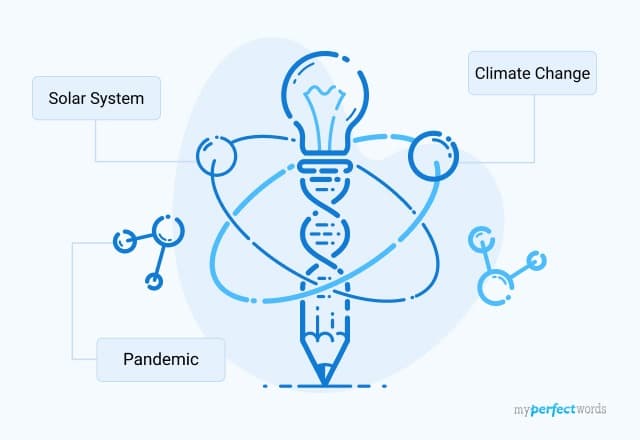

It's an election year for NASW, too. NASW members, meet the dedicated colleagues who are running for our Board of Directors — the all-volunteer leadership team responsible for the governance and sustainability of our membership association. Stay tuned later this summer for voting instructions!
Featured news
The next ninety years: 90th anniversary address of the national association of science writers, thank you to our nasw community fund contributors, happy birthday nasw's 90th anniversary story + photo share, wendy lyons sunshine—tender paws: how science-based parenting can transform our relationship with dogs.

Become an NASW member
Advertise with sciencewriters, explore nasw member benefits, find a writer / post a job, reinvigorate your career, share our calls to action, advance copy.
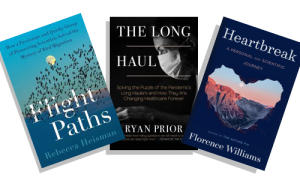
A Field Guide for Science Writers
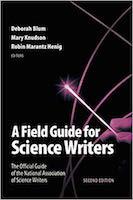
Science Writers' Handbook series
The Science Writers’ Handbook and its spinoff titles have become must-read guides for all science writers. Whether you’re a journalist, communicator, educator, or scientist, the books offer fun, pithy, and readable advice for launching a new career or enhancing your existing one.
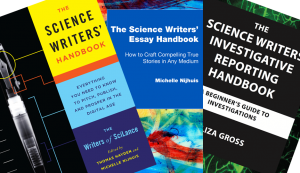
Browse Course Material
Course info.
- Prof. David Kaiser
Departments
- Science, Technology, and Society
As Taught In
- History of Science and Technology
- Modern History
Learning Resource Types
Einstein, oppenheimer, feynman: physics in the 20th century.
There are three essays and one essay revision for STS.042. All papers should be double-spaced, in 12-point font, and have standard margins of standard width (1 to 1.25 inches). Acceptable file formats include .doc, .docx, and .pdf.
Assignment: Write a referee report on Einstein’s 1905 paper on special relativity.
Due date: Friday of Week 5
Length: 4–5 double-spaced pages.
Grade: Your grade on Paper 1 will contribute 25% of your final course grade.
Due date: Friday of Week 8
Length: 6–7 double-spaced pages.
Grade : Your grade on Paper 2 will contribute 20% of your final course grade.
Paper 2 Revision Exercise
Assignment: Revise paper 2. Your revised paper should again be 6–7 double-spaced pages.
Due date: Friday of Week 11
Due date: Wednesday of Week 15
Length: 10–12 double-spaced pages.
Grade: Your grade on Paper 3 will contribute 35% of your final course grade.

You are leaving MIT OpenCourseWare
Science Essay Examples

Best Science Essay Examples to Learn From
Published on: May 3, 2023
Last updated on: Jan 31, 2024

Share this article
Are you struggling to write a science essay that stands out?
Are you tired of feeling overwhelmed by scientific jargon and complicated concepts?
You're not alone.
Science essays can be a challenge for even the most dedicated students. It's no wonder that so many students struggle to produce top-notch papers.
But fear not!
In this blog post, we'll provide you with some science essay examples and tips. We will help you write a top-notch paper that impresses your professor and earns you a high grade.
So buckle up and get ready to tackle science essays like a pro!
On This Page On This Page -->
Science Essay Examples for Students
Writing a science essay can be a daunting task for students. However, with the right guidance and examples, it can also be a rewarding and enlightening experience.
Here, we'll provide you with examples so you can elevate your own writing.
Science Essay Example SPM
Scientific Essay Example Pdf (Insert
Science Paper Example
Science Project Essay Example
Science Essay Examples for Different Subjects
Science is a vast field that encompasses many different subjects, from biology to physics to chemistry. As a student, you may find yourself tasked with writing a science essay on a subject that you're not particularly familiar with.
We have provided you with science essay examples for different subjects to help you get started.
Social Science Essay Example
Political Science Essay Example
Environmental Science Essay Example
Health Science Essay Example
Computer Science Essay Example
University Science Essay Examples
Science essays are important part of university-level education. However, different universities may have different requirements and expectations when it comes to writing these essays.
That's why we've compiled some science essay examples for different universities. You can see what works and what doesn't, and tailor your own writing accordingly.
Scientific Essay Example University
Mcmaster Health Science Essay Example
Cornell Arts And Science Essay Example

Tough Essay Due? Hire Tough Writers!
Structure of a Science Essay
Science essays are a crucial part of many subjects, and learning to structure them effectively is essential for achieving academic success.
Letâs explore scientific essay structure.
Introduction
The introduction of a science essay should introduce the topic and provide some context for the reader.
You should explain the purpose of the essay and provide a thesis statement that outlines the main argument you will make in the essay. A good introduction should also capture the reader's interest and motivate them to read on.
Check out these how to start a science essay examples for better understanding:
Body Paragraphs
The body paragraphs of a science essay should provide evidence to support the thesis statement. You should use scientific evidence, research, and data to support your argument.
Each paragraph should focus on one key point, and the points should be organized logically to create a coherent argument. It is essential to provide citations for all sources you use in your essay.
Here is an example for you:
The conclusion of a science essay should summarize the main points of the essay and restate the thesis statement in a compelling manner.
You should also provide some final thoughts or recommendations based on the evidence presented in the essay.
The conclusion should be concise and leave a lasting impression on the reader.
Natural Science Essay Topics
There are countless interesting, thought-provoking and problem solving essay topics in science.
Explore some compelling natural science essay topics to inspire your writing.
Science Essay Topics for 5th Graders
- The importance of recycling for our environment
- The different types of clouds and how they form
- How animals hibernate during the winter months
- The different types of rocks and how they are formed
- The role of bees in pollination and food production
- How light travels and how we see objects
- The properties of magnets and how they work
- The different stages of stem cell research
- The human digestive system and how it works
- The effects of pollution on our environment and health
Science Essay Topics for 6th Graders
- The impact of climate change on the planet
- The different types of energy and how they are produced
- The importance of water conservation and management
- The role of artificial intelligence in human life
- The structure and function of the human respiratory system
- The properties and uses of acids and bases
- The effect of light on plant growth and development
- The differences between renewable and non-renewable energy sources
- The process of photosynthesis and its importance for life on Earth
- The impact of technology on the environment and society
Science Essay Topics for 7th Graders
- The structure and function of the human circulatory system
- The different types of fossils and how they are formed
- The impact of natural disasters on the environment and human life
- The pros and cons of bacteria in our bodies and in the environment
- The physics of sound and how it travels
- The effects of air pollution in United States
- The properties and uses of different types of waves (sound, light, etc.)
- The process of cell division and its role in growth and repair
- The structure and function of the human nervous system
- The different types of ecosystems and their unique characteristics
Paper Due? Why Suffer? That's our Job!
Tips for Writing a Science Essay
Writing a science essay can be challenging, especially if you don't have much experience in writing academic papers.
However, with the right approach and strategies, you can produce a high-quality science essays.
Here are some tips to help you write a successful science essay:
Understand the assignment requirements: Before you start writing your essay, make sure you understand the assignment requirements. Read the prompt carefully and make note of any specific guidelines or formatting requirements.
Choose a topic that interests you: Writing about a topic that you find interesting and engaging can make the process enjoyable and rewarding. Consider topics that you have studied in class or that you have a personal interest in.
Conduct thorough research: To write a successful science essay, you need to have a deep understanding of the topic you are writing about. Conduct thorough research using reliable sources such as academic journals, textbooks, and reputable websites.
Develop a clear and concise thesis statement: Your thesis statement should clearly state your argument or position on the topic you are writing about. It should be concise and specific, and should be supported by evidence throughout your essay.
Use evidence to support your claims: When writing a science essay, it's important to use evidence to support your claims and arguments. This can include scientific data, research findings, and expert opinions.
Edit and proofread your essay: Before submitting your essay, make sure to edit and proofread it carefully. Check for spelling and grammatical errors. Ensure that your essay is formatted correctly according to the assignment requirements.
In conclusion, this blog has provided a comprehensive guide to writing a successful science essay.
By following the tips, students can produce high-quality essays that showcase their understanding of science.
If you're struggling to write a science essay or need additional assistance, CollegeEssay.org is one of the best online essay services to help you out,
Our expert writers have extensive experience in writing science essays for students of all levels.
So why wait? Contact our science essay writing service today!
Frequently Asked Questions
What are some common mistakes to avoid when writing a science essay.
Some common mistakes to avoid include:
- Plagiarizing content
- Using incorrect or unreliable sources
- Failing to clearly state your thesis
- Using overly complex language
How can I make my science essay stand out?
To make your science essay stand out, consider choosing a unique or controversial topic. Using relevant and up-to-date sources, and present your information in a clear and concise manner. You can also consider using visuals such as graphs or charts to enhance your essay.
What should I do if I'm struggling to come up with a topic for my science essay?
If you're struggling to come up with a topic for your science essay, consider discussing potential topics with your instructor or classmates. You can also conduct research online or in academic journals to find inspiration.
How important is research when writing a science essay?
Research is an essential component of writing a science essay. Your essay should be grounded in accurate and reliable scientific information. That is why it's important to conduct thorough research using reputable sources.
Can I use personal anecdotes or experiences in my science essay?
While personal anecdotes or experiences can be engaging, they may not always be relevant to a science essay. It's important to focus on presenting factual information and scientific evidence to support your argument or position.
Caleb S. (Law, Literature)
Caleb S. has extensive experience in writing and holds a Masters from Oxford University. He takes great satisfaction in helping students exceed their academic goals. Caleb always puts the needs of his clients first and is dedicated to providing quality service.
Paper Due? Why Suffer? That’s our Job!

Legal & Policies
- Privacy Policy
- Cookies Policy
- Terms of Use
- Refunds & Cancellations
- Our Writers
- Success Stories
- Our Guarantees
- Affiliate Program
- Referral Program
- AI Essay Writer
Disclaimer: All client orders are completed by our team of highly qualified human writers. The essays and papers provided by us are not to be used for submission but rather as learning models only.
Home / Essay Samples / Science
Scientific Essay Examples
Science is the systematic investigation of the surrounding world through observation and experiments and the process of formulating judgments and hypotheses based on obtained evidence. Given that science can be directed at virtually any question that humans find relevant, so can be an essay on science – starting from questions in natural sciences and ending with social sciences.
Science is always relevant because it is the practice through which virtually any new knowledge is gained and any innovation is achieved. Another reason for its relevance is because nowadays, the scientific consensus is often ignored by many people and even national authorities. Below you can find several scientific essay examples to review – note the topics, structure, information delivery style, language.
Gmo: Balancing Benefits and Drawbacks
Genetically Modified Organisms (GMOs) have been a topic of intense debate and scrutiny for decades. This argumentative essay aims to shed light on the benefits of GMOs, arguing that their positive impact on agriculture, food security, and sustainability outweigh the drawbacks. While concerns about safety...
Spanish Slang and Its Role in Contemporary Communication
Language is a living, evolving entity, and slang is one of its most dynamic facets. In the Spanish-speaking world, slang, or "jerga" as it's known, adds vibrancy, humor, and cultural context to communication. Spanish slang is a rich tapestry of expressions that reflect the diversity...
Lost Cities and Lost Treasure
The allure of lost cities and lost treasure has captured human imagination for centuries. These mysteries from the past, hidden beneath layers of time and nature, evoke a sense of adventure, curiosity, and the possibility of uncovering untold stories and riches. From the legendary city...
The Rocking-horse Winner: Unveiling Hidden Desires
D.H. Lawrence's short story "The Rocking-Horse Winner" delves into the complexities of human desires and the destructive power of materialism. This essay analyzes the themes of luck, greed, and the pursuit of wealth, while also examining the characters' emotional turmoil and the haunting consequences of...
The Practical Role of Math in Everyday Life
Understanding how math is used in everyday life unveils the hidden threads that intricately connect mathematics to our daily experiences. This essay delves into the practical applications of math in various facets of our lives, shedding light on how this fundamental discipline influences our decisions,...
Conserving Energy: a Path to Sustainability
Energy conservation is not merely a concept—it's a responsibility that each individual and society bears to ensure the sustainable future of our planet. With growing concerns about climate change and resource depletion, conserving energy has become a crucial step toward minimizing our ecological footprint. In...
Energy Crisis: Illuminating Perspectives
"Energy is the golden thread that connects economic growth, social equity, and environmental sustainability." This quote by Ban Ki-moon underscores the pivotal role of energy in shaping the modern world. However, as global demands increase and resources dwindle, an energy crisis looms on the horizon....
Exploring "My Side of the Mountain": a Journey into Wilderness and Self-discovery
"My Side of the Mountain," written by Jean Craighead George, is a captivating novel that takes readers on a unique journey of self-discovery through the eyes of a young protagonist. In this essay, we will delve into the world of "My Side of the Mountain,"...
Earthquakes: Causes, Effects, and Implications
Earthquakes, natural phenomena that shake the very ground we stand on, have captured human fascination and fear for centuries. These sudden and often devastating events are the result of intricate geological processes that have both immediate and far-reaching effects. In this essay, we will delve...
A World Without Mathematics: Imagining the Unthinkable
Mathematics is the language of logic, order, and structure that underpins our world. It is a fundamental tool for understanding the universe, solving problems, and advancing technology. Imagine, for a moment, a world without mathematics — a world devoid of equations, calculations, and mathematical concepts....
Trying to find an excellent essay sample but no results?
Don’t waste your time and get a professional writer to help!
- Agriculture
- Anthropology
- Political Science
- Scientific Method
- Genetic Engineering
- Solar Eclipse
- Space Exploration
- Photosynthesis
- Microbiology
- Bilingualism
- Albert Einstein
- Renewable Energy
- Isaac Newton
- Thomas Edison
- Engineering
- Intelligent Machines
- Biotechnology
- Hermit Crab
- Wildlife Conservation
- Earth Science
- Archaeology
- Criminology
- Criminology Theories
- Ethnography
- Kinesiology
- Research Methods
- Science and Culture
- Science Vs. Religion
- Social Studies
samplius.com uses cookies to offer you the best service possible.By continuing we’ll assume you board with our cookie policy .--> -->